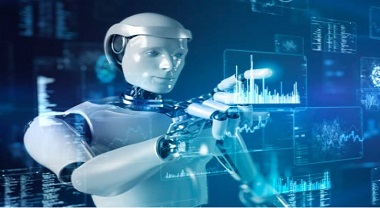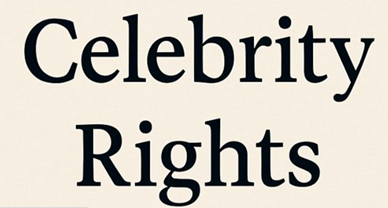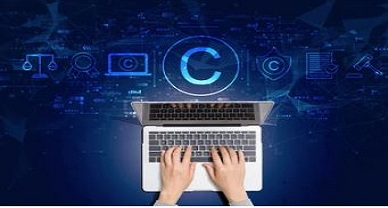Decoding The Limitations In According Authorship Rights To Artificial Intelligence
In the conventional sense, copyright law requires that the concerned work must, in its entirety, be an outcome of the intellectual labor of a human being. However, at the dawn of the digital era, computer software is being used in abundance to help create literary and artistic works. Courts across the globe, recognizing this aspect, have granted copyright protection to works generated using computer programs. However, it is essential to note here that human intervention is a must; therefore, only in an instance where computer programs are used as mere tools to help aid the creation of a work, can such a work be granted protection.
Nowadays, however, with a full-blown rise in technological advancement, the autonomy of AI in producing output has increased many-fold. AI systems these days require a minimal amount of input; the programmer merely sets the parameters and the actual work is done by the AI itself. Therefore, with the increasing autonomy of AI, it is imperative to grant copyright protection to AI-generated works without a human author, which are now being produced in abundance.

AI-generated art and copyright protection
One of the primary purposes of copyright law is to provide certain exclusive rights to authors to exploit their creations, which provide incentives for people to contribute to the media and entertainment industry. Granting protection to AI-generated works is therefore imperative in order to provide incentives to companies dealing in such businesses, thereby boosting research and development in the artificial intelligence sector. Not granting copyright ownership would severely impact their operations, as any person could easily copy or use their creations, without incurring any liability. However, while the importance of protecting such works is evident, in the event of granting them protection, who must be considered the author of the work? While the majority of jurists argue that it is the programmer who is rightfully the creator, others claim that in light of the increasing independence of AI in creating works of art, it is the AI system that must be granted authorship.
Economics of AI-generated output
While arguing over the fact whether AI systems must be granted authorship or not, it is also important to determine the relevance of such works in the market. While it is true that AI is a faster and a more cost-effective mode of producing creative output, can such creations truly act as substitutes for human labour? Would a person really want to pay for a computer-generated Rembrandt, an algorithm-produced fake Nirvana song or a van Gough-inspired painting by Google’s AI. With AI still in its early stages of development, such works are, more often than not, a random aggregation of tons of data. This also could lead to instances of copyright infringement, where the work created by AI is substantially similar to a protected work. While it is true that in most countries, the requisite level of creativity for copyright protection is very low, merely being original does not guarantee the success of a work. The fact that A.I. can generate billions of outputs does not per se render such output desirable, and would almost be futile in light of market failure.
However, imposing a blanket ban on granting AI authorship rights would severely dent the R&D sector, since companies across the globe invest massive sums of money on the A.I. systems to have such works generated. This would not only be unjust towards the programmers who invest their heart and soul in the process, but would also put fraudsters at liberty to commercialize copies of such works at cheap costs and marginal labour. Therefore, it is imperative that while AI may not be granted authorship, programmers and companies are considered owners, since some amount of incentive is required for such companies to continue thriving in their AI-related R&D domains.
Limitations in granting AI authorship
While it is true that A.I can reorganize data in ways beyond human comprehension, granting authorship rights to A.I would impose several issues. For instance, referring to the incentives argument, with A.I. being a non-human entity, it can in no way be incentivized into producing more output, unlike a human being. It is therefore the programmers and, in some cases, the end users involved in the process, who must be granted authorship rights. The programmer invests a significant amount of his time and labour in designing the algorithm, which is basically the brainchild of the programmer. Granting authorship to programmers and companies involved in generating work using AI would enable them to continue thriving in such activities. Therefore, not recognizing programmers as authors would both be violative of the principle of fairness and a marred blot upon the creativity doctrine, since the AI would not be in existence if it weren’t for the programmer.
The duration for which copyright subsists would also be looked upon if AI were to be accorded authorship. Currently, for most countries, copyright subsists through the lifetime of the author, plus 50 or 60 years post his death. However, this rule would have to be significantly modified, since unlike humans, AI is immortal. Every copyrightable work requires a certain amount of creativity and therefore, requires time to be completed. Therefore, a human being, who is mortal, can only produce a limited number of creative works in his lifetime. A machine, on the other hand, an immortal entity that experiences no fatigue, is capable of generating tons of creations within short spans of time. However, according to several experts, if like inputs are to be given to the same model, the AI would eventually start producing the same output on every occasion, thus limiting creativity.
The UK Copyrights, Designs and Patents Act, 1988
It is notable that while the majority of the legislations across the globe do not grant protection to works devoid of human intervention, the UK Copyrights, Designs and Patents Act, 1988 establishes an exception to the requirement of a human author. Section 178 of the Act defines a computer-generated work as a work produced by a computer, under circumstances where there is no human author. Section 9(3) of the Act states that in cases of computer-generated works, the author is the person responsible for undertaking the arrangements imperative for bringing the work into existence. In cases where AI is programmed so as to act as an ‘independent actor’ and produce work autonomously, there exists an apparent gap between the input given by the programmer and the output generated. In this regard, experts appear to be divided on who must be considered the person ‘responsible for undertaking the arrangements’. Several experts claim that the programmer must be considered the author in this regard and not the user, especially in instances when the user’s contribution is the mere push of a button. However, as suggested by Sik Cheng Peng in his study, in instances where the user is involved in determining the data that is to be fed to the AI system, he must be regarded as the author, and not the programmer.
Conclusion
It could therefore be concluded that in today’s world, where AI is being used extensively to produce literary, artistic, sound recordings and musical works, it is imperative to accord protection to AI-generated creations. However, considering stiff legislation and the fact that AI is still in its early stages, it neither seems feasible nor desirable to grant authorship to AI.
Author: Vedant Saxena – a student of Rajiv Gandhi National University of Law (Punjab), in case of any queries please contact/write back to us at support@ipandlegalfilings.com or IP & Legal Filing.



